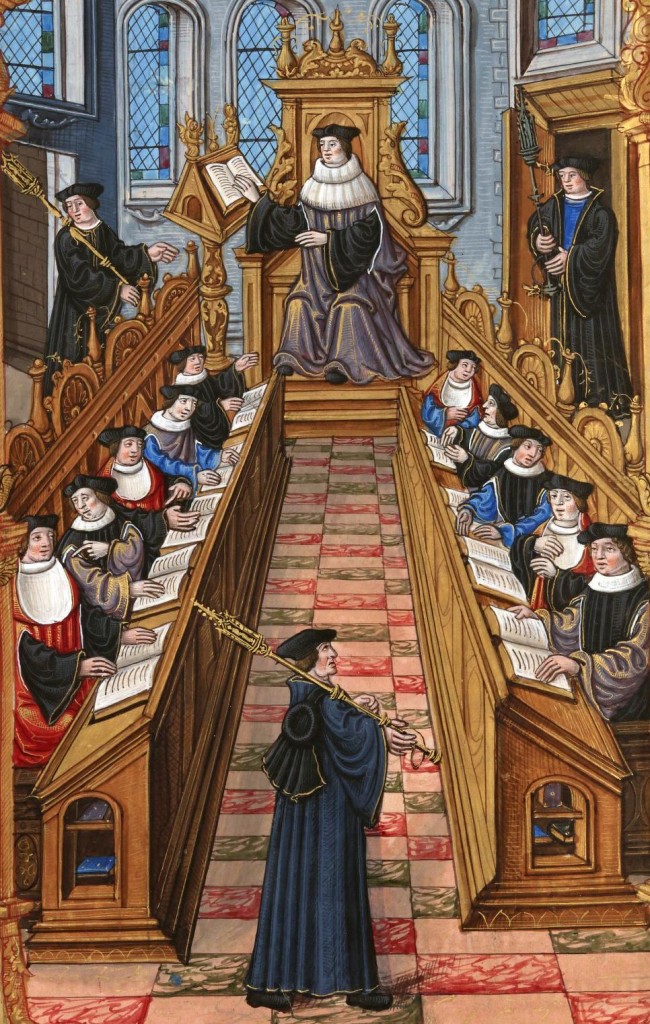 |
| All that fruitful disagreement is how we got universities! This is the University of Paris, circa the middle ages. Credit: Ex Urbe. |
Key points:
- The Church does not have doctrine about every procedure and situation. And that is okay. It's actually better to legislate carefully rather than redact hastily-promulgated stuff that wasn't well thought out.
- Faithful Catholics who have worked to form their consciences can discuss issues on which the Church has not spoken. It is even okay if they disagree!
- New scientific data can complicate the issue and that's okay, too! We shouldn't rest until we're confident about what we know.
- This patience, freedom, disagreement is extremely productive in the search for the truth, and often leads to the Church laying out doctrine.
- Theologians who are truly faithful will concede when they're wrong and adopt what's true, even if they don't understand it. Sometimes, they won't know they're wrong until an official promulgation or until more science comes out, but that's okay.
That's all. I've mentioned Point #5 before when talking about St. Hildegard of Bingen and St. Thomas Aquinas.
At left is a painting of St. Thomas presenting all his works to the Church (the female figure) who wears the papal tiara and sits in the light of the Holy Spirit. Yes, the man was wrong about when life begins, but he was a faithful son of the Church and the model for all theologians.
Postscript on blog data for 2015: number of posts last year was not bad, considering it contained my first six months of intern year. Sure, it didn't touch the absurd 136 posts I created in 2012, when I was just out of college and living fancy free as a medical student. (Twenty-one posts during one single month...what on earth did I have to say almost every day? And that happened twice that year!) I think my most valuable posts so far have been in 2015, as I've wrestled with ethical issues.

